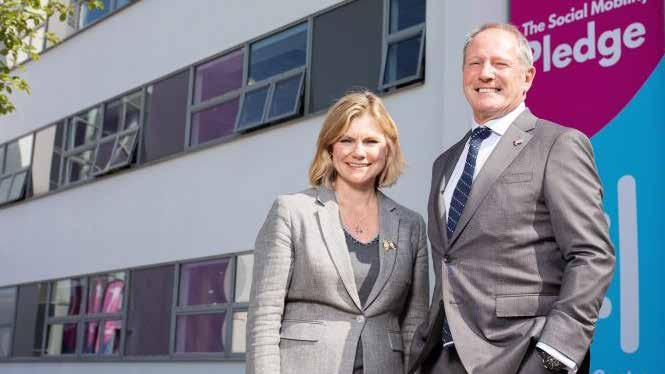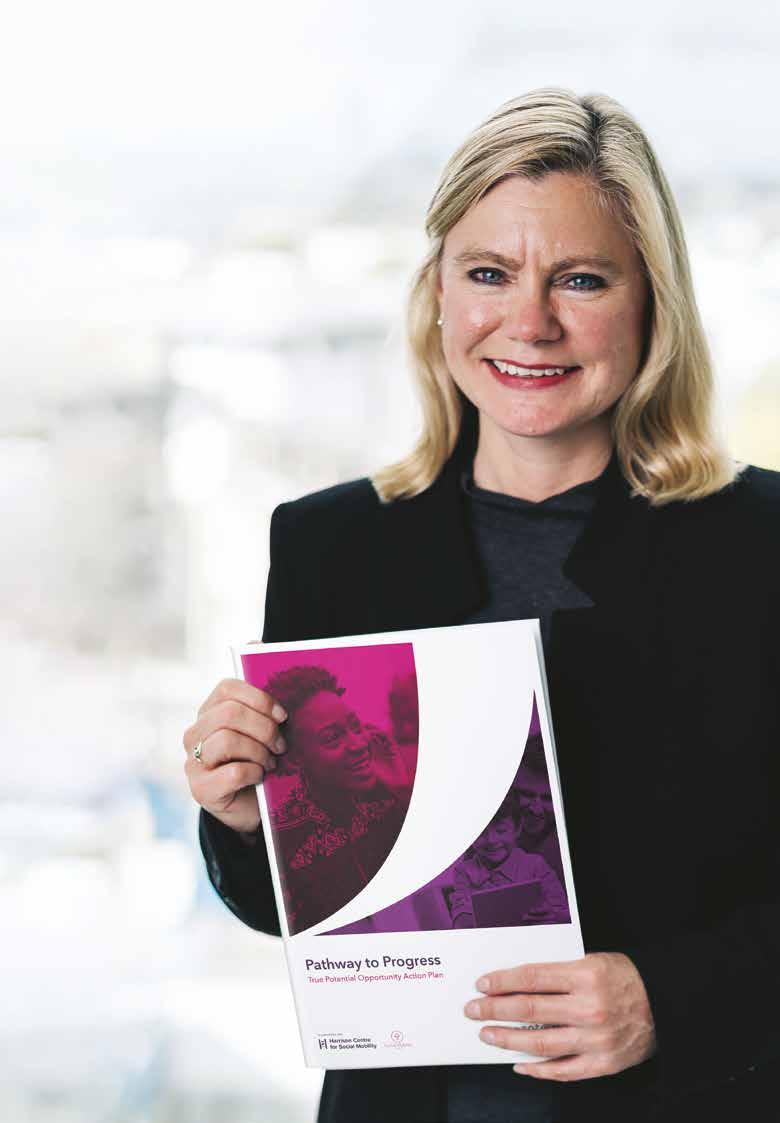
2 minute read
The Social Mobility Problem
Social mobility is often defined as an individual’s ability to progress further in life than their parents. In the UK it has stagnated in recent decades, meaning that where a person is born largely dictates where they end up in life.
The barriers that prevent people from breaking out of this trend include a focus among employers on connections over competence, unconscious bias about accents and where a person grew up and a lack of opportunities which are accessible to people in disadvantaged communities.
According to the report, A Broken Social Elevator? How to Promote Social Mobility, it could take at least five generations, or 150 years, for the child of a poor family to reach the average income, on average across OECD countries.
Meanwhile, one in three children with a low earning father will also have low earnings while, for most of the other two-thirds, upward mobility is limited to the neighbouring earnings group.
The OECD’s report also shows that, whereas many people born to low-educated parents between 1955 and 1975 enjoyed income mobility, this has stagnated for those born after 1975.
Over the four-year period looked at by the report, about 60 per cent of people remained trapped in the lowest 20 per cent income bracket, while 70 per cent remained at the top. At the same time, one in seven middle-class households, and one in five people living closer to lower incomes, fell into the bottom 20 per cent.
This is reflected in the Social Mobility Pledge’s own research which reveals that, in the UK, young people are finding it harder to progress in the workplace than their parents or grandparents did.
It shows that a majority (60 per cent) of workers aged 35 to 64 believe economically disadvantaged people in the generation below them have a harder time advancing their careers than those one generation older.
The poll also asked workers to score how easy it is to get on in life, regardless of background, in the UK.
With one being ‘very hard’ and 10 being ‘very easy’, an average score of five was registered, although a quarter of those polled rated it ‘hard’ or ‘very hard’.
The Social Mobility Pledge was set up to highlight and address these issues in the UK and, in doing so, to level up opportunity and build a fairer society.
It encourages organisations to be a force for good by putting social mobility at the heart of their purpose. By sharing their own best practice with other businesses and universities, they are not only demonstrating their own commitment but creating a powerful shift towards purpose-led organisations.










